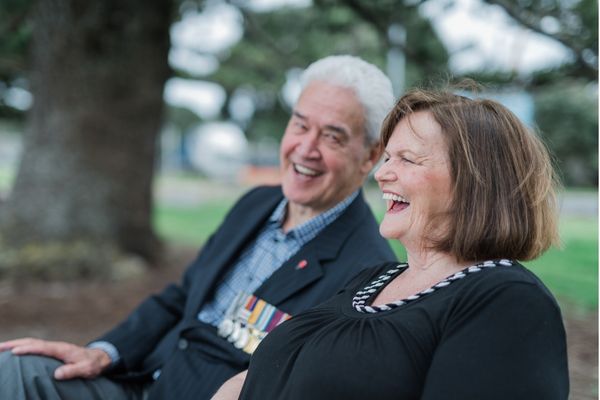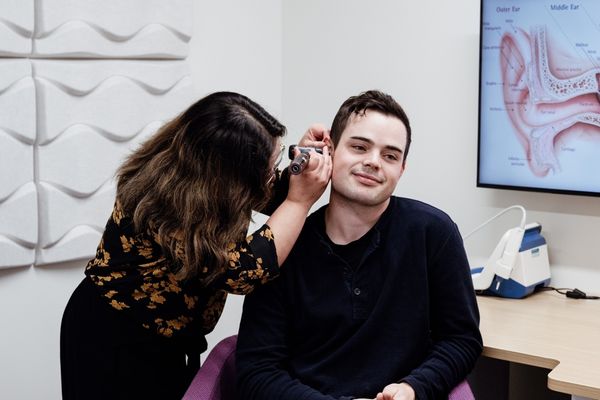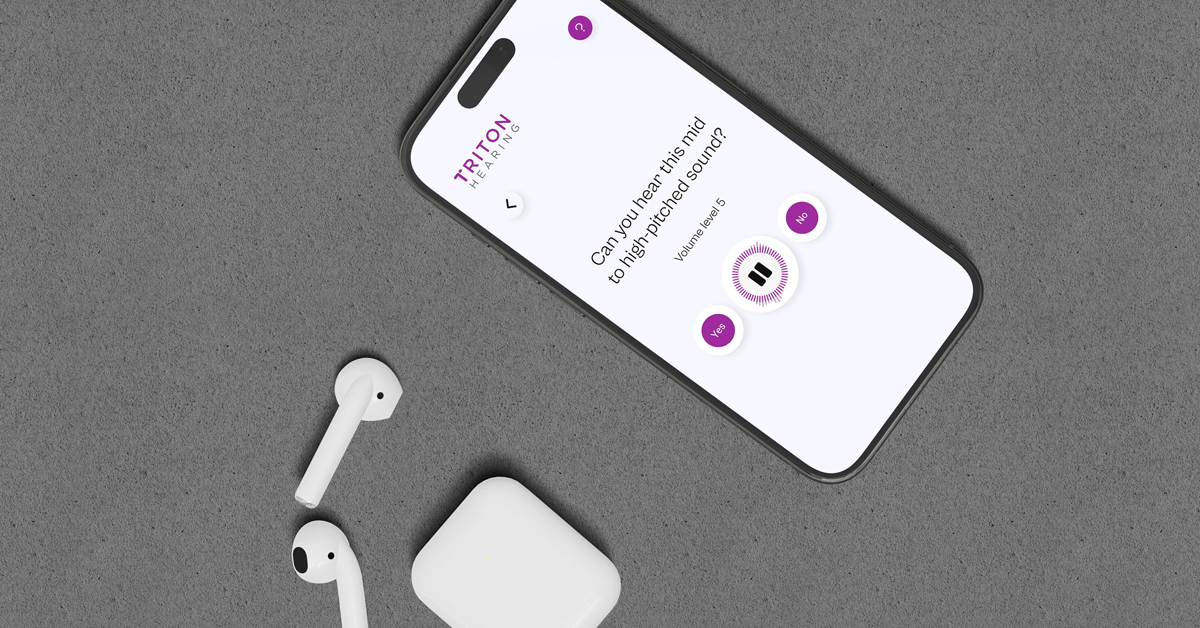Hearing Loss and Cognitive Decline
Find out how hearing aids can protect brain power and reduce dementia risk.
Hearing loss and cognitive health strongly correlate
Recent studies have provided important new insights into the link between hearing health and cognitive function — and the significant potential of hearing interventions to help slow the decline of thinking and memory skills.¹ ²
One study found that wearing hearing aids can slow the loss of cognitive abilities by up to 48% over three years in older adults at increased risk of cognitive decline. Another study showed that individuals who used hearing aids maintained their cognitive abilities over the same period, while those without hearing intervention experienced noticeable cognitive decline.

The Effect of Hearing Aids on Cognition
Hearing aids that restore access to sound can play an important role in slowing cognitive decline. By improving the clarity and quality of sound signals, hearing aids help the brain process and interpret what is being heard more effectively. This reduces the mental strain involved in listening, allowing the brain to focus on understanding meaning rather than struggling to detect sounds. In doing so, hearing aids help support better cognitive function and ease the overall listening effort.
Recent research has shown that hearing aids broadly enhance social interaction³ and are associated with higher levels of social activity.⁴ ⁵ In turn, staying socially active is recognised as an important factor for successful ageing⁶ and plays a key role in supporting cognitive health.⁷
Hearing is a complex ability
Hearing is the passive ability to perceive sound — it's the first step in how we take in information from the world around us. But simply hearing isn’t enough. Listening is an active process that involves focusing our attention and being intentional about what we hear. From there, comprehending allows us to interpret and understand the meaning and intent behind the sounds and words we’ve listened to. Finally, communicating is the process of sharing that understanding — exchanging information, meaning, or intent with others. Each step builds on the last, forming the foundation of effective connection and interaction.
Hearing loss means:
- It gets harder for the brain to put the overall picture together
- It becomes more difficult to focus on the speaker
- Not only a reduction of sound but also a disconnection to our surroundings
1 Lin, F. R., Pike, J. R., Albert, M. S., Arnold, M., Burgard, S., Chisolm, T., Couper, D., Deal, J. A., Goman, A. M., Glynn, N. W., Gmelin, T., Gravens-Mueller, L., Hayden, K. M., Huang, A. R., Knopman, D., Mitchell, C. M., Mosley, T., Pankow, J. S., Reed, N. S., Sanchez, V., … ACHIEVE Collaborative Research Group (2023). Hearing intervention versus health education control to reduce cognitive decline in older adults with hearing loss in the USA (ACHIEVE): a multicentre, randomised controlled trial. Lancet (London, England), 402(10404), 786–797. https://doi.org/10.1016/S0140-6736(23)01406-X
2 Sarant, J. Z., Busby, P. A., Schembri, A. J., Fowler, C., & Harris, D. C. (2024). ENHANCE: a comparative prospective longitudinal study of cognitive outcomes after 3 years of hearing aid use in older adults. Frontiers in aging neuroscience, 15, 1302185. https://doi.org/10.3389/fnagi.2023.1302185
3 Paluch, R., Latzel, M., & Meis, M. (2015). A new tool for subjective assessment of hearing aid performance: Analyses of Interpersonal Communication. Proceedings of the International Symposium on Auditory and Audiological Research, 5(0), 453-460. https://www.proceedings.isaar.eu/index.php/isaarproc/article/view/2015-54
4 Sawyer, C. S., Armitage, C. J., Munro, K. J., Singh, G., & Dawes, P. D. (2019). Correlates of Hearing Aid Use in UK Adults: Self-Reported Hearing Difficulties, Social Participation, Living Situation, Health, and Demographics. Ear and Hearing, 40(5), 1061-1068. https://doi.org/10.1097/aud.0000000000000695
5 Holman et al., (2021). Hearing aids reduce daily-life fatigue and increase social activity: a longitudinal study. Trends in Hearing, 25, 23312165211052786.
6 Ho, M., Pullenayegum, E., & Fuller-Thomson, E. (2023). Is Social Participation Associated with Successful Aging among Older Canadians? Findings from the Canadian Longitudinal Study on Aging (CLSA). International Journal of Environmental Research and Public Health, 20(12). https://doi.org/10.3390/ijerph20126058
7 Haslam, C. (2018). The new psychology of health: unlocking the social cure (1 Edition ed.). Routledge New York.
Fast, free*, and easy – Hearing checks available in days not weeks. Let's Get Started.
We’ve made it easier than ever to check your hearing. Our clinics offer free* 15-minute checks, with spaces available most days. Fill in the form or call us on 0800 45 45 43 between 8:30am-7pm Monday to Friday to book a time that suits you. *Our hearing checks are free for anyone aged 18 and older.







